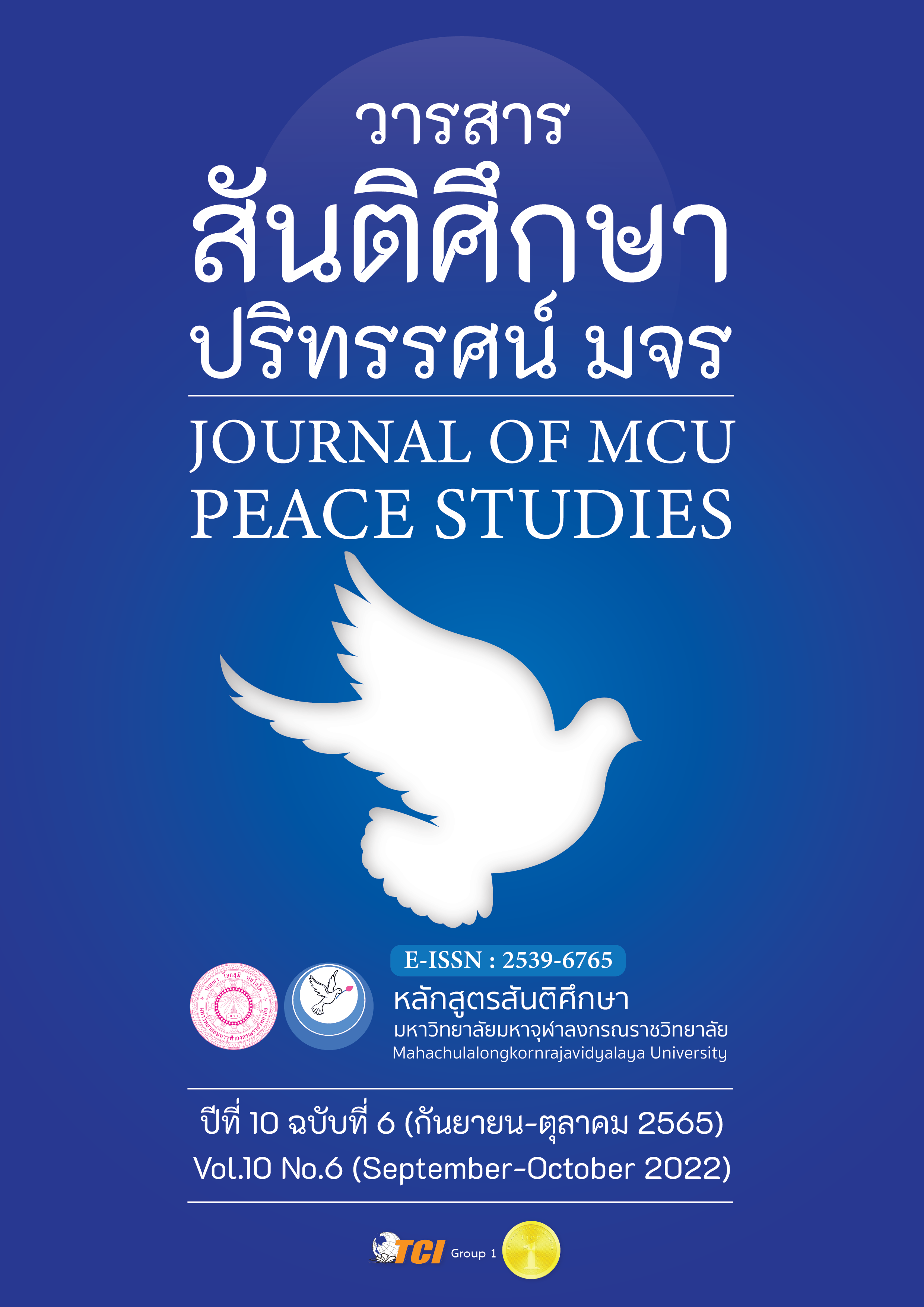การเปรียบเทียบผลสัมฤทธิ์ทางการเรียนและความสามารถในการแก้ปัญหาด้วยการจัดกิจกรรมการเรียนรู้โดยใช้แนวคิดเกมิฟิเคชัน
Main Article Content
บทคัดย่อ
บทความวิจัยนี้มีวัตถุประสงค์เพื่อ 1. เปรียบเทียบผลสัมฤทธิ์ทางการเรียน โดยใช้การจัดกิจกรรม การเรียนรู้โดยใช้แนวคิดเกมิฟิเคชันก่อนและหลังการจัดกิจกรรม 2. เปรียบเทียบความสามารถในการแก้ปัญหา โดยใช้การจัดกิจกรรมการเรียนรู้โดยใช้แนวคิดเกมิฟิเคชัน ก่อนและหลังการจัดกิจกรรม 3. เปรียบเทียบผลสัมฤทธิ์ทางการเรียน โดยใช้การจัดกิจกรรมการเรียนรู้ตามแนวคิดเกมิฟิเคชัน ผ่านเกณฑ์ ในระดับที่ตั้งไว้ ร้อยละ 70 และ 4. เปรียบเทียบความสามารถในการแก้ปัญหา โดยใช้การจัดกิจกรรม การเรียนรู้ตามแนวคิดเกมิฟิเคชัน ผ่านเกณฑ์ในระดับที่ตั้งไว้ร้อยละ 70 การวิจัยครั้งนี้เป็น การวิจัยกึ่งทดลอง กลุ่มตัวอย่างที่ใช้ในงานวิจัยคือ นักเรียนชั้นประถมศึกษาปีที่ 4 โรงเรียนชูสินทองประดิษฐ์อนุสรณ์ ภาคเรียนที่ 2 ปีการศึกษา 2563 จำนวน 1 ห้องเรียน มีจำนวนนักเรียน 28 คน ที่ได้มาจากวิธีการเลือกหน่วยตัวอย่างอย่างง่าย
ผลการวิจัยพบว่า 1) ผลสัมฤทธิ์ทางการเรียน หลังเรียนด้วยการจัดการเรียนรู้โดยใช้แนวคิดเกมิฟิเคชัน สูงกว่าก่อนเรียน อย่างมีนัยสำคัญทางสถิติที่ระดับ .05 2) ความสามารถในการแก้ปัญหา หลังเรียนด้วยการจัดการเรียนรู้โดยใช้แนวคิดเกมิฟิเคชัน สูงกว่าก่อนเรียน อย่างมีนัยสำคัญทางสถิติ ที่ระดับ .05 3) ผลสัมฤทธิ์ทางการเรียน หลังเรียนด้วยการจัดการเรียนรู้โดยใช้แนวคิดเกมิฟิเคชัน สูงกว่าเกณฑ์ร้อยละ 70 อย่างมีนัยสำคัญ ทางสถิติที่ระดับ .05 4) ความสามารถในการแก้ปัญหา หลังเรียนด้วยการจัดการเรียนรู้โดยใช้แนวคิดเกมิฟิเคชัน สูงกว่าเกณฑ์ ร้อยละ 70 อย่างมีนัยสำคัญทางสถิติที่ระดับ .05
Article Details

อนุญาตภายใต้เงื่อนไข Creative Commons Attribution-NonCommercial-NoDerivatives 4.0 International License.
ทัศนะและความคิดเห็นที่ปรากฏในบทความในวารสาร ถือเป็นความรับผิดชอบของผู้เขียนบทความนั้น และไม่ถือเป็นทัศนะและความรับผิดชอบของกองบรรณาธิการ ยินยอมว่าบทความเป็นลิขสิทธิ์ของวารสาร
เอกสารอ้างอิง
Boonsarn, T. (2017). Instructional Program to Enhance Team Work Skills by Applying Gamification Technique on Programming for Enrichment Science Class Student Mathayomsueksa IV Kanlayanawat School. (Master’s Thesis). Rajabhat Maha Sarakham University. Maha Sarakham.
Intasuksri, T. (n.d.). First Aid Management. Faculty of Public Health, Mahidol University.
Kapp, K. M. (2012). The Gamification of Learning and Instruction: Game-Based Methods and Strategies for Training and Education. (1st ed.). San Francisco: Pfeiffer.
Khemmani, T. (2011). The Science of Teaching Knowledge for Effective Learning Process. Bangkok: Chulalongkorn University Printing House.
Kowtrakul, S. (2013). Educational Psychology. Bangkok: Chulalongkorn University Printing House.
Limaksorn, W. (2008). Education Psychology. Songkhla: PSU Bookstore.
Laisakul, P. (2014). Gamification Turns The World Into A Game. Retrieved January 20, 2021, from https://tednet.wordpress.com/2014/05/19/gamification-turnstheworldintoagame
Meesook, C. (2015). The Learning Activities to Enhance Engagement by Applying Gamification Technique on Information and Communication Technology Course for Enrichment Science Class student Mathayomsueksa IV Anukoolnaree School. (Master’s Thesis). Rajabhat Maha Sarakham University. Maha Sarakham.
Ministry of Education (2007). Learning Management as a Problem-Solving Process. Bangkok: Office of The Education Council Secretariat.
Ministry of Education (2008). Core Curriculum for Basic Education 2008. Bangkok: Ministry of Education Thailand.
Noulcharen, P. (2013). The Development of Learning Media with Augmented Reality Technology by Using Memonice to Promote Reading the Spelling Section Students Grade 2. (Master’s Thesis). King Mongkut's University of Technology Thonburi. Bangkok.
Rodkroh, P. (2015). Research and Development of a Problem-Based Learning Digital Game to Enhance Problem Solving Ability in Science Subject for Elementary Students. (Doctoral Dissertation). Chulalongkorn University. Bangkok.
Sattrapruek, S. (2017). Flipped Classroom in 21st Century Learning for Development of Learning and Innovation Skills. Academic Services Journal, 28(1), 100-108.
Thongchumnum, P. (2004). Elementary Science Teaching. Bangkok: Odeonstore.
Weir, J. J. (1974). Problem Solving is Every Body’s Problem. Science Teacher, 41(4), 16-18.
Wilson, L. O. (2016). Anderson and Krethwohl Bloom’s Taxonomy Revised Understanding the New Version of Bloom’s Taxonomy. Retrieved January 14, 2021, from https://quincy college.edu/content/uploads/Anderson-and-Krathwohl_Revised-Blooms-axonomy.pdf


